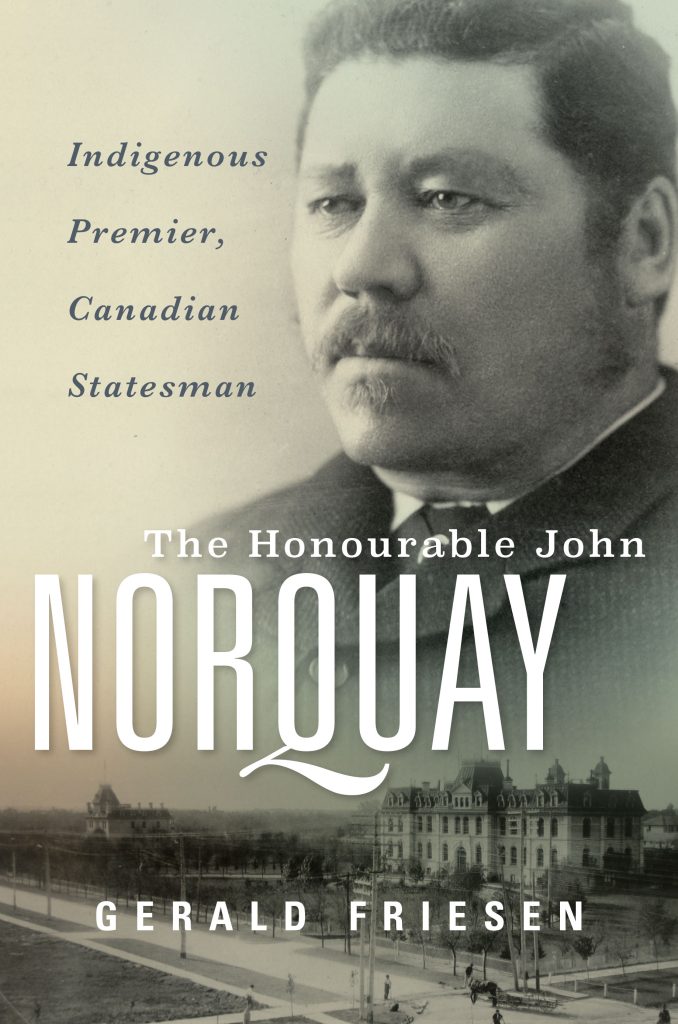
What was your goal while writing this book?
I wanted to make a case for Norquay’s importance in the first decades after
Confederation and for the relevance of his thinking and of his example today.
Was there a book or piece of writing that made you want to pursue writing as a career?
What was it?
I read a lot during my elementary school years. Books on sports and several mystery
series stand out in my memory, as does a book of humour that I thought was amazingly funny when I was nine years old.
Who or what were your influences while writing this book?
During my childhood and teen years in Prince Albert I studied, played, and worked with
First Nation and Métis people. In the fifty-plus years I’ve lived in Winnipeg, I have worked with many people in Manitoba schools, in the trade union movement, and in government. My wife sat in the legislature for thirteen stressful years which offered insights into the complicated business of politics. These were influences I could see while I was writing. I wanted to express respect for Indigenous activism, to acknowledge the commitment of civil servants, union leaders, teachers, and political representatives, and to reveal a little of the intellectual challenges and partisan realities that shaped the electoral fortunes and fate of this one good person, John Norquay.
What is one thing you learned while writing this book you wish everyone knew?
Norquay’s vision of Canada differed from the thinking of those few among his
contemporaries who are remembered and celebrated today. He expressed an ideal of bilingual and multicultural citizenship, he insisted that First Nations and English and French Métis were equal in status to other citizens, and he campaigned for a rebalancing of national and provincial powers within the Canadian federation. His perspective was just as worthy as the Ontario “national” vision represented by John A. Macdonald.
Tell me a bit about why writing about Canada/Canadians is important to you?
Each of us belongs to many communities, from the very local to the global and universal.
I believe (I know not everyone shares this view), that the nation-state is one of the most
important of these communities because of its power to impose limits and open possibilities for us all. If our nation-state, Canada, is to function well, citizens have to find the means to express their own views and interests while learning to respect others’ views and interests. They have to argue more or less amicably, even when they disagree vehemently. I want to live in a democracy where discussion is encouraged, and group decisions are reached fairly. And I believe that a history book can tackle significant public matters in the past – Indigeneity, Prairieness, business strategy, and election campaigns, in the case of the Norquay biography – while offering a useful perspective on our lives today.

